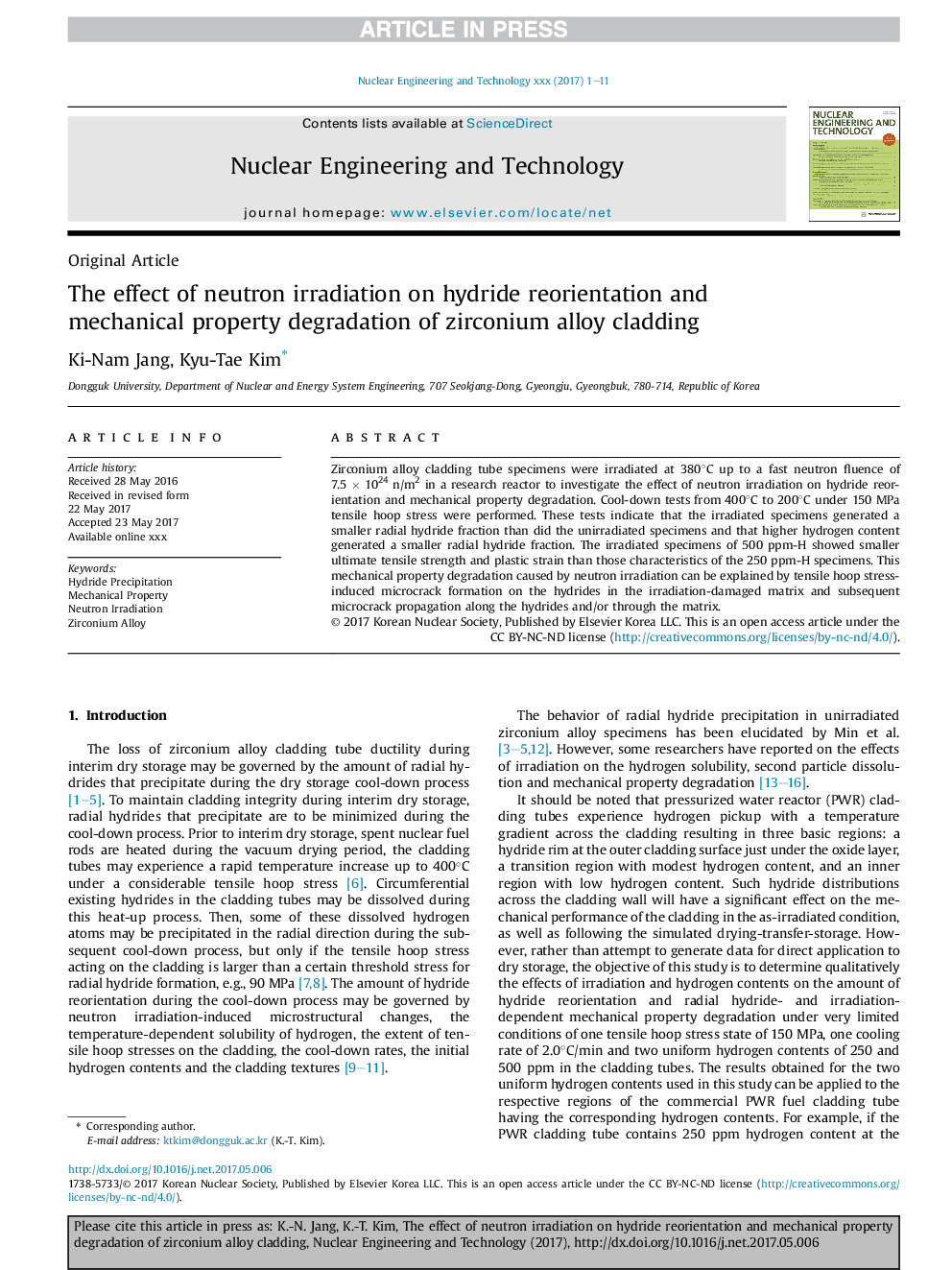| Article ID | Journal | Published Year | Pages | File Type |
|---|---|---|---|---|
| 8084010 | Nuclear Engineering and Technology | 2017 | 11 Pages |
Abstract
Zirconium alloy cladding tube specimens were irradiated at 380°C up to a fast neutron fluence of 7.5 Ã 1024 n/m2 in a research reactor to investigate the effect of neutron irradiation on hydride reorientation and mechanical property degradation. Cool-down tests from 400°C to 200°C under 150 MPa tensile hoop stress were performed. These tests indicate that the irradiated specimens generated a smaller radial hydride fraction than did the unirradiated specimens and that higher hydrogen content generated a smaller radial hydride fraction. The irradiated specimens of 500 ppm-H showed smaller ultimate tensile strength and plastic strain than those characteristics of the 250 ppm-H specimens. This mechanical property degradation caused by neutron irradiation can be explained by tensile hoop stress-induced microcrack formation on the hydrides in the irradiation-damaged matrix and subsequent microcrack propagation along the hydrides and/or through the matrix.
Related Topics
Physical Sciences and Engineering
Energy
Nuclear Energy and Engineering
Authors
Ki-Nam Jang, Kyu-Tae Kim,
